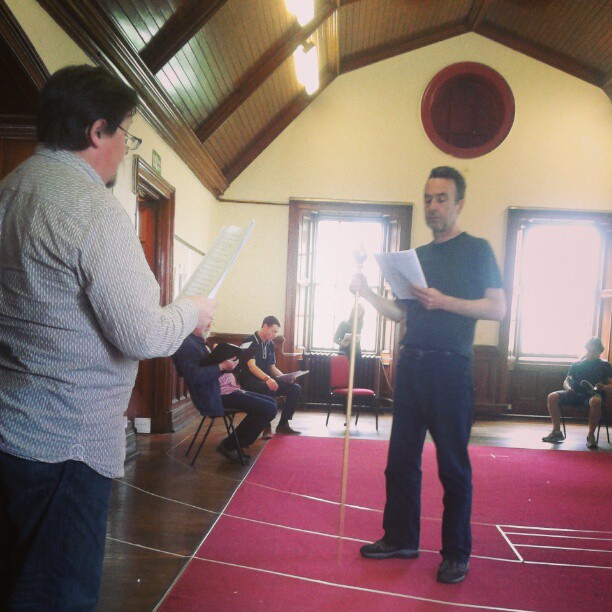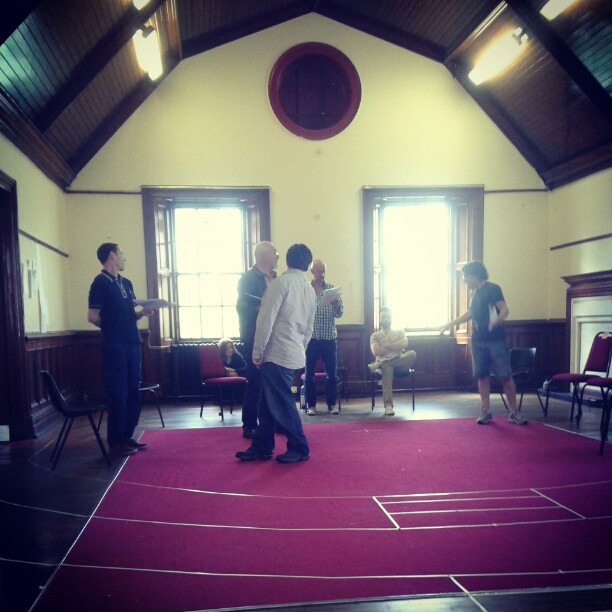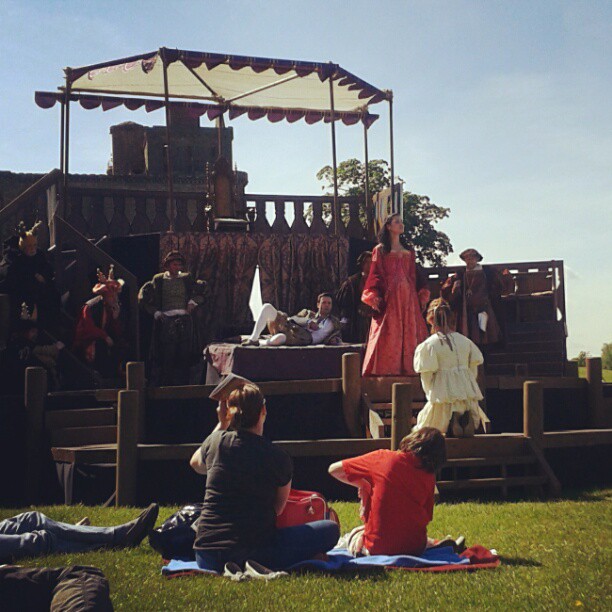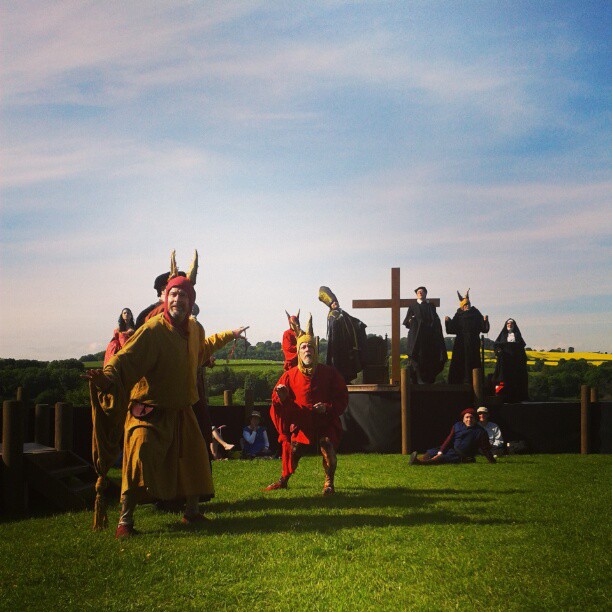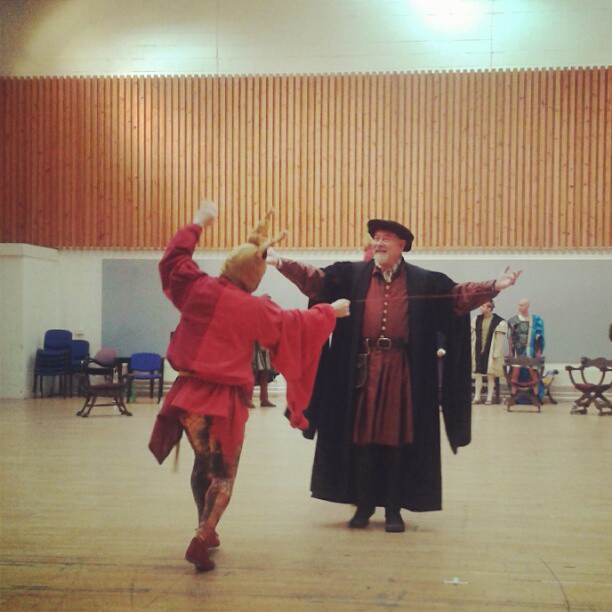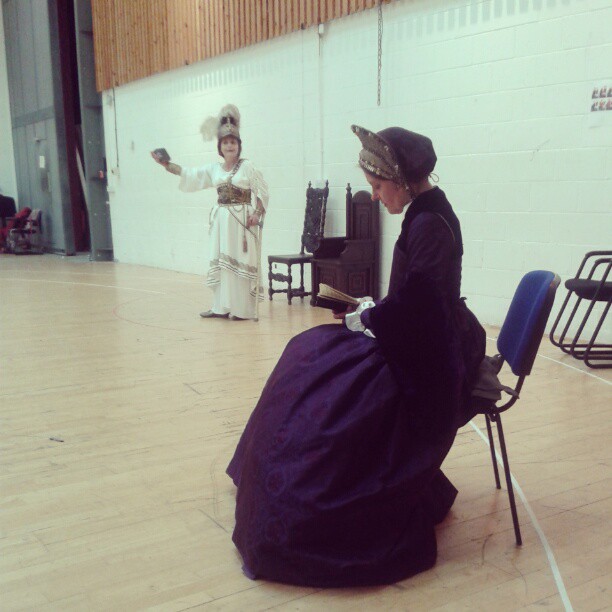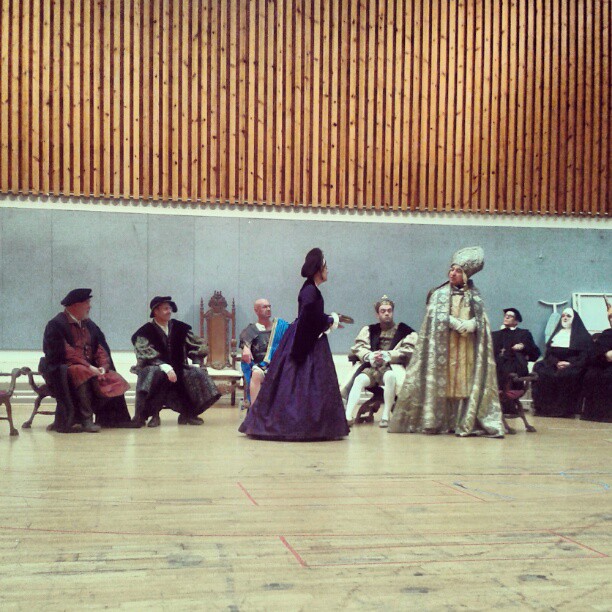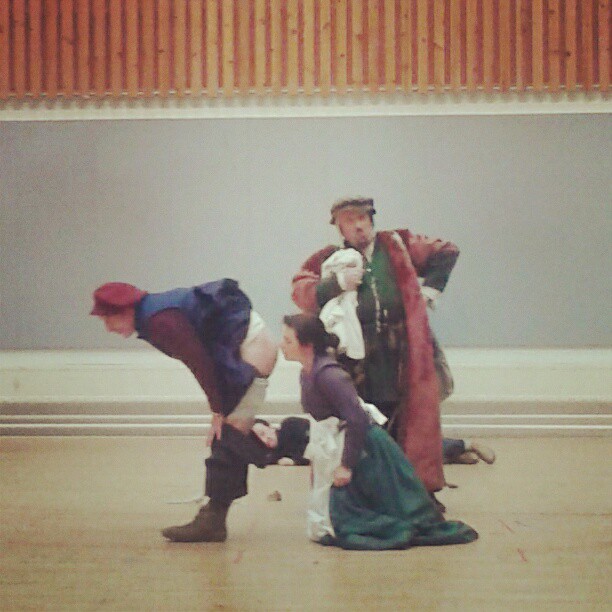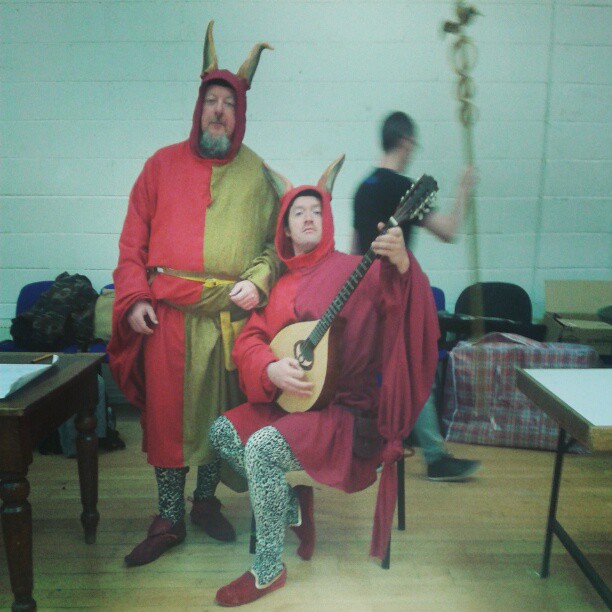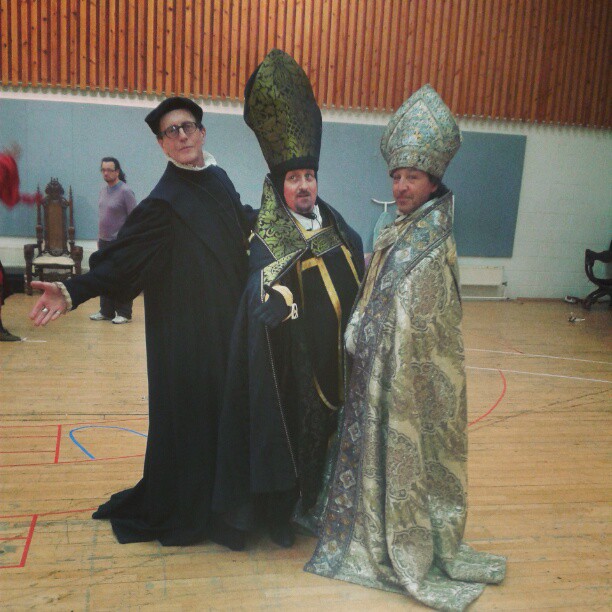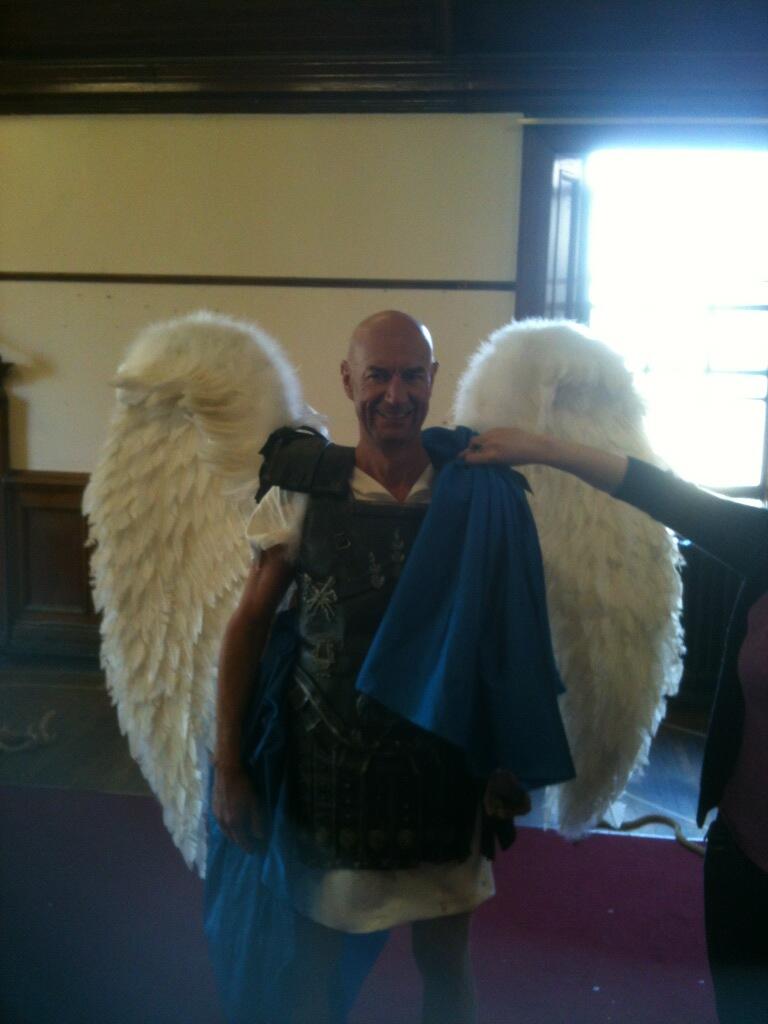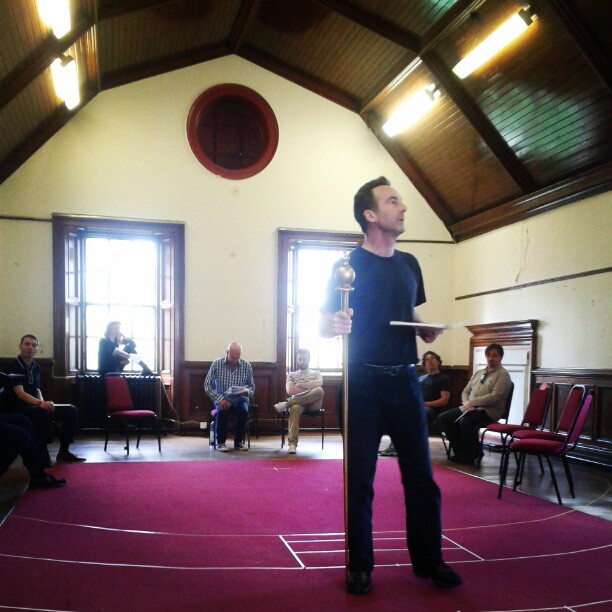
In the morning we looked at the opening of the parliament, and there was lots of discussion about the extent of the political discord John the Commonwealth invokes when he enters the parliament.
Peter Kenny (playing the Pardoner and the Abbot) bought up how the word âmurmelâ (Merchant, âHow we shall slaik the great murmel?â and Temporality, âto save us frae murmelâ) is used in the play to signify social discontent. The problem or âmurmelâ is dealt with to some extent by absorbing John into the parliament and making him the fourth estate, but the actor Gerda Stevenson pointed out that there is also something very puritanical and extreme about John the Commonwealâs suggested reforms. Tom Betteridge said that Johnâs presence has been produced by the failure of the Commonwealth, and Greg Walker added that there is an anxiety about the forces that have been unleashed by his appearance, and how wide-reaching and oppressive the reforms he suggests might be.
Johnâs speech at lines 2605-2619 took quite some unpacking to work out exactly who the targets of his censure are â is it the entertainers he is getting at or noble excess? In fact it took all morning to work through lines 2347-3115, paraphrasing them into the vernacular. After lunch we worked through the actual text. This is a really key part of the text; the meat of the disagreement, arguably the heart of the play.
We staged the estates gangand backwart into parliament and Johnâs louping of the stank, and it was great to see these inherently theatrical moments on their feet for the first time having thought about them on the page for so many months. The backwards motion of the estates results in their bumping into each other, making a point about the realmâs disorder as much as it heightens the comedy.
We discovered that the staging of this section would be dependent on whether we saw the audience as part of the parliament or whether we see them as excluded from it. This is an important production choice. The actors explored some of the confines of our recreative staging; their inclination to use all the space and address the audience as much as possible was in tension with a political space that is exclusive and accessible only to few.
We finished the day by looking at how Oppression, Falsehood and Deceit get put in the stocks.  Again the inside/outside of the parliament was one of the features that needed attention. In fact the spatial vocabulary of political space took precedence all day, giving the opportunity to take some great pictures!
